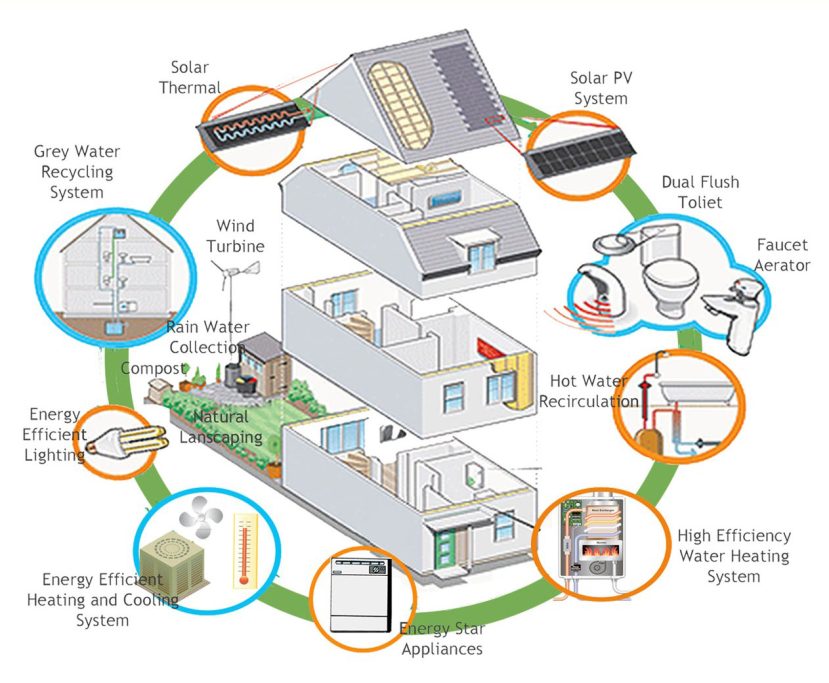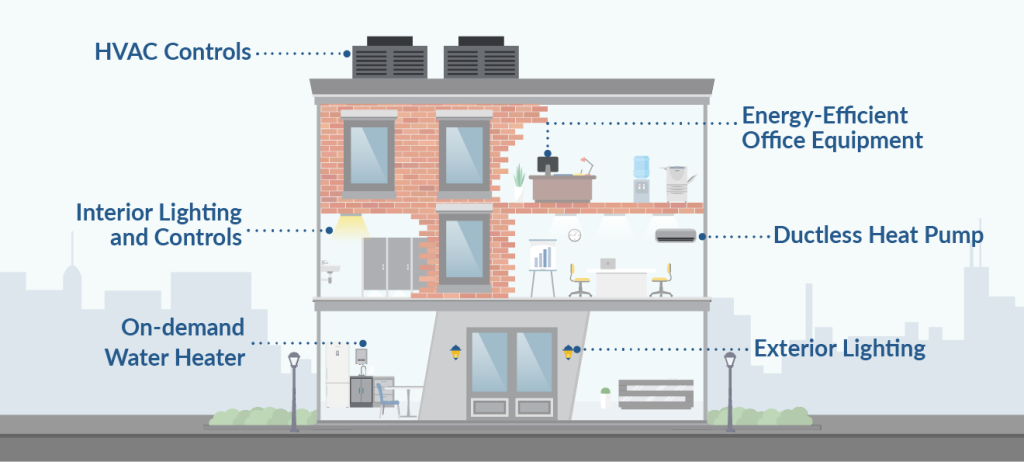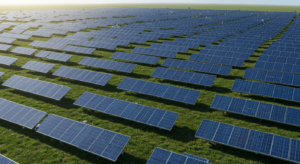HVAC systems (Heating, Ventilation, and Air Conditioning) are at the core of modern buildings’ climate control. With the growing emphasis on energy efficiency, understanding how to reduce energy use in heating and cooling systems is vital. This guide explores energy-efficient HVAC systems in commercial buildings, providing insights into achieving high efficiency and significant energy savings.

The Basics of Energy-Efficient HVAC Systems
HVAC systems account for a substantial amount of energy consumption in buildings. An energy-efficient HVAC system is designed to use less energy, delivering the desired climate without unnecessary waste. Here’s what makes an efficient system:

- Heat Pump System: Heat pumps like air source heat pumps are energy-efficient, transferring thermal energy instead of generating it.
- Control Systems: Advanced control systems allow for precise regulation, further reducing energy consumption.
- Ventilation: Proper ventilation helps in regulating the indoor air, preventing the system from working harder and wasting energy.
- Maintenance: Regular HVAC maintenance ensures that the system runs efficiently and without leakage, conserving energy use.
Commercial HVAC: Heating and Cooling Buildings
Commercial heating and cooling are often more complex than residential and small commercial systems. Here’s how to make a commercial HVAC system more energy-efficient:
- VAV Systems: Variable Air Volume (VAV) systems adjust the conditioned air flow, offering flexibility and efficiency.
- Energy Management: Smart energy management solutions optimize the use of energy for heating or cooling, aligning with energy policy and markets.
- Energy Star Certified Equipment: Selecting equipment with Energy Star certification ensures higher system efficiency.
Reducing Energy Costs with High-Performance HVAC Systems
High-performance HVAC systems can significantly reduce energy costs:
- New Energy Technologies: Leveraging renewable energy and clean energy solutions can enhance the energy efficiency of HVAC systems.
- Building Envelope Improvements: Ensuring the building’s structure is sealed and insulated minimizes heating and cooling loads.
- Cooling System Optimization: Implementing efficient cooling strategies, including proper compressor usage, reduces the energy needed to cool spaces.
HVAC System Challenges and Solutions
Despite the numerous benefits, challenges might arise within the system:
- System Performance: Regular check-ups identify when the system needs adjustments to improve efficiency.
- Existing System Upgrades: Retrofitting an existing system with modern, efficient technology can often deliver energy savings.
- Energy Waste Prevention: Monitor and eliminate any waste, such as duct system leakage, to ensure the most efficient system possible.
Conclusion: Building a Better Future with HVAC Energy Efficiency
HVAC system energy efficiency is one of the most significant factors in commercial heating and cooling success. From employing high-efficiency HVAC units to monitoring energy usage, implementing energy efficiency strategies like these benefits both the environment and the bottom line.
Investing in energy-efficient HVAC systems, including heating system upgrades, cooling system enhancements, and smart control systems, allows commercial and institutional buildings to reduce energy consumption, save on the energy bill, and achieve high sustainability standards.
Embrace the future of energy-efficient buildings by optimizing your HVAC system today. The right heating and cooling equipment can make your building a comfortable and environmentally responsible space. The next step to a greener tomorrow is just a click away.




